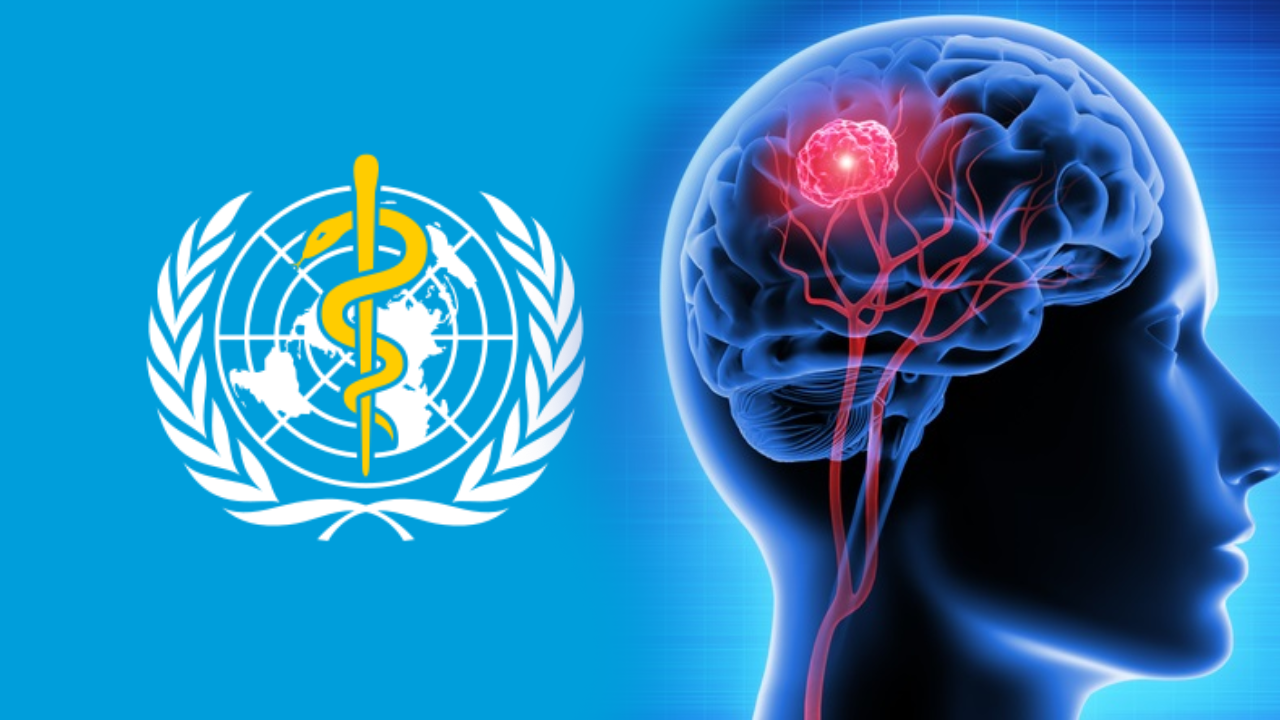Over the past few decades, mobile phones have evolved from being a luxury item to an indispensable part of modern life. As their usage has grown exponentially, so too have concerns about the potential health risks associated with prolonged exposure to radiofrequency (RF) radiation.
Among the most serious concerns is the fear that mobile phone usage might increase the risk of brain cancer. However, a new study commissioned by the World Health Organization (WHO) has shed significant light on this issue, concluding that there is no link between mobile phone use and an increased risk of brain cancer.
Table of Contents
The Evolution of Mobile Phone Use and Public Concerns
Mobile phones were introduced to the public in the 1980s, and their adoption has skyrocketed since then. Today, billions of people across the globe rely on these devices for communication, information, and entertainment. This widespread use has sparked public health debates, particularly concerning the potential long-term effects of RF radiation emitted by mobile phones.

RF radiation, a type of non-ionizing electromagnetic radiation, is emitted by mobile phones, as well as other devices such as televisions, baby monitors, and radar systems. Unlike ionizing radiation, such as X-rays, which has enough energy to remove tightly bound electrons from atoms and cause cellular damage, non-ionizing radiation is generally considered less harmful. However, given the close proximity of mobile phones to the head during use, concerns have persisted about the possibility that RF radiation could affect brain tissue and potentially lead to cancer.
The WHO-Backed Study: Methodology and Scope
The latest WHO-commissioned study is one of the most comprehensive reviews to date, examining evidence from 63 studies conducted between 1994 and 2022. The research was conducted by a team of 11 investigators from 10 different countries, including experts from the Australian government’s radiation protection authority. This international collaboration aimed to provide a global perspective on the issue, taking into account a wide range of studies and data sources.
The study focused on various types of cancer, including brain cancer in both adults and children, as well as cancers of the pituitary and salivary glands, and leukemia. It also assessed risks associated with different levels of mobile phone use, including prolonged exposure and the use of mobile phones for more than a decade. Additionally, the study considered the potential risks from other sources of RF radiation, such as base stations, transmitters, and occupational exposure.
Key Findings: No Increased Risk of Brain Cancer
One of the most significant findings of the study is the absence of any substantial evidence linking mobile phone use to an increased risk of brain cancer. Despite the dramatic rise in mobile phone usage over the past few decades, the incidence of brain cancers has not increased correspondingly. This finding applies even to individuals who use their phones for extended periods, as well as those who have been using mobile phones for over ten years.
Mark Elwood, a professor of cancer epidemiology at the University of Auckland in New Zealand and a co-author of the study, emphasized that “none of the major questions studied showed increased risks.” This conclusion is consistent with the findings of previous studies and reviews, which have also found no definitive link between mobile phone use and cancer.

The study’s findings are particularly important given the ongoing classification of RF radiation as “possibly carcinogenic” (Group 2B) by the International Agency for Research on Cancer (IARC), a category used when the evidence is not sufficient to rule out a potential link. The IARC’s classification has been a source of concern and confusion for the public, with some interpreting it as evidence of a potential health risk. However, the new WHO-backed study adds to the growing body of evidence suggesting that the risk is minimal, if it exists at all.
The Broader Implications: Public Health, Policy, and Future Research
The results of this study have significant implications for public health policy and future research. For one, they provide reassurance to the billions of mobile phone users worldwide that their devices are unlikely to pose a significant cancer risk. This is especially important in an era where mobile phones are integral to daily life, not just for communication but also for work, education, and social interaction.
Moreover, the study highlights the importance of relying on robust scientific evidence when making public health decisions. In the past, concerns about mobile phones and cancer have led to widespread public fear, fueled in part by sensational media coverage and misinformation. The WHO-backed study serves as a reminder that public health policies should be based on sound science rather than speculation or fear.
However, the study also underscores the need for ongoing research. While the findings are reassuring, they are not definitive. The study’s authors note that more research is needed to continue monitoring the potential long-term effects of mobile phone use, particularly as technology evolves and new generations of mobile phones are introduced. The rapid adoption of 5G technology, for example, has raised new questions about the potential health effects of RF radiation, and these will need to be addressed in future studies.
The Role of International Health Organizations
International health organizations, such as the WHO, play a crucial role in evaluating and communicating the risks associated with new technologies. The WHO’s involvement in commissioning and endorsing this study lends significant credibility to its findings. Moreover, the organization’s commitment to ongoing research and evaluation ensures that public health recommendations will continue to evolve in response to new evidence.

The WHO’s advisory group has already called for a re-evaluation of the IARC’s classification of RF radiation, based on the new data presented in the study. This re-evaluation is expected to take place soon, and it could lead to a revision of the current classification. If the evidence continues to support the findings of the WHO-backed study, RF radiation may be downgraded from its current “possibly carcinogenic” status.
The Public’s Response and Perception
Public perception of the risks associated with mobile phone use has been shaped by a combination of scientific studies, media reports, and personal beliefs. Despite the reassuring findings of the WHO-backed study, it is likely that some individuals will continue to be concerned about the potential health risks of mobile phones. This is not unusual; public attitudes toward health risks often lag behind the scientific evidence, particularly when the risks involve new or poorly understood technologies.
One challenge for public health authorities is to effectively communicate the findings of studies like the WHO-backed review to the general public. This involves not only disseminating the results but also addressing the underlying fears and misconceptions that may persist. Transparency is key in this process; people need to feel that they have access to the full range of information and that their concerns are being taken seriously.
Educational campaigns and public awareness initiatives can play a role in this. By providing clear, accurate, and accessible information about the risks (or lack thereof) associated with mobile phone use, public health authorities can help to alleviate unnecessary fears and ensure that people are making informed decisions about their mobile phone usage.
Looking Forward: The Future of Mobile Phone Technology and Health

As mobile phone technology continues to evolve, so too will the conversation about its potential health effects. The transition to 5G networks, for example, has already sparked new debates about RF radiation and its potential impacts on human health. While the WHO-backed study provides important insights into the risks associated with current mobile phone technology, it is just one piece of a larger puzzle.
Future research will need to keep pace with technological advancements, ensuring that any potential risks are identified and addressed in a timely manner. This will require collaboration between scientists, public health authorities, and industry stakeholders. It will also require a commitment to transparency and openness, both in the conduct of research and in the communication of its findings to the public.
In the meantime, the findings of the WHO-backed study offer a degree of reassurance to mobile phone users. While it is always wise to use technology responsibly and to stay informed about potential risks, there is currently no compelling evidence to suggest that mobile phones pose a significant threat to our health. As research continues, we can expect to learn more about the long-term effects of mobile phone use, but for now, the evidence points to a low risk of brain cancer associated with mobile phone radiation.
